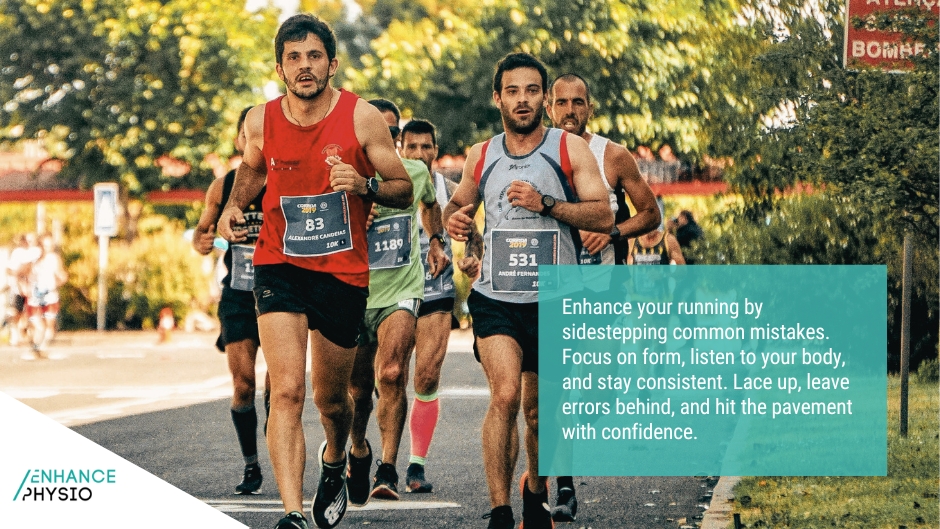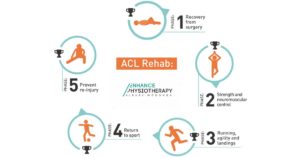Are you an avid runner but not seeing the results you want? It’s possible that you’re making some common mistakes that are hindering your progress. Running is a great way to stay fit and improve cardiovascular health, but it’s important to do it correctly to avoid injury and maximise your efforts.
Running is a popular form of exercise for people of all fitness levels. However, many runners make mistakes that can prevent them from reaching their full potential. Whether you’re a beginner or a seasoned runner, it’s important to be aware of these common mistakes and make the necessary adjustments to improve your performance.
These are the five most common running mistakes that result in injury or failure of achieving goals:
1. Not setting realistic goals and not giving yourself adequate time to achieve them
Not giving yourself a realistic time frame to achieve your goal causes stress and anxiety with the fear of being “behind” or not being able to achieve your set goal. The result of feeling this way often causes runners to “cram” in their training. Cramming may occur in different forms, involving a significant increase in training volume, intensity, duration, or a combination of these. For instance, an addition of extra run days, longer distances, a faster pace, and the removal of rest days.
With this sudden increase in load, a runner’s physiological stress places the body at risk of developing a lower limb injury. Much research has shown that when training load is fairly consistent, ranging from a 5 –10% increase each week, athletes have a <10% risk of injury. However, for those whose training load increased by 15% or more each week, the risk of injury was 21–49%. Therefore, in simple terms, to minimise the risk of injury, runners should increase their weekly training load by <10%.
2. Ignoring strength and conditioning training
There are usually two reasons why runners avoid strength and conditioning training.
Firstly, many runners mistakenly believe that strength training will make them “bulk up” with muscle mass and therefore impact their running ability. There is, however, no evidence for this. Research has shown a combination of strength and endurance training has improved efficiency, speed and strength without bulking up or putting on additional muscle.
Secondly, runners are unaware of the benefits associated with strength training.
Research has shown runners who include strength training in their program have improved running endurance and energy efficiency, reduced risk of injury, improved time to exhaustion at maximal aerobic speed, and improved timed performance.

3. Running at a higher intensity too often
It can be difficult for runners to understand the concept that if they want to run faster, they likely need to slow down in some of their training sessions. Running too hard or too frequently is the single biggest mistake in the sport of running. There has been recent research that has suggested that runners improve most rapidly when they do slower runs in training more often than faster runs.
The world’s leading runners report that they spend on average 80% of their training below the “ventilatory threshold”—basically, a pace where you can comfortably hold a conversation.
In other words, for every hard run, the elite distance runner will run four easy runs. The recreational runner tends to run one easy run for every hard run. The other 20% of training time is spent at high intensity, which is above the respiratory compensation threshold.
4. Ignoring bone and soft tissue health
Bones, muscles, tendons, and ligaments are all living tissues that require good “health” to strengthen.
There is a common belief among runners that running enhances bone health, but it more likely “maintains” it. That is, if you were to run regularly, you have a better chance of “slowing the normal age-related decline” of bone mineral density, which to some degree is true, but there are many other factors such as weight training, nutrition (calcium), adequate levels of vitamin D, and avoiding sudden and unexpected loads to the bones.
5. Spending too much time stretching and foam rolling
Many runners spend far too much time stretching and foam rolling in the hope that it will allow them to run injury-free and faster. Stretching is certainly not bad, and it can have its place; however, in many instances, people spend too much time with these stretching routines with very little, if any, improvement.
The main concern is focusing time on stretching when that time could be better spent on strength and conditioning, which have proven to be very beneficial in reducing injury and improving performance. A more superior approach would be replacing “stretching” with a strength and conditioning program with a component of mobility.

Final thoughts on five common running mistakes
By avoiding these common running mistakes, you can take your running game to the next level. Remember, it’s not just about the distance or the speed, but also about proper form, listening to your body, and staying consistent. So lace up those running shoes, leave those mistakes behind, and hit the pavement with confidence. Happy running!





